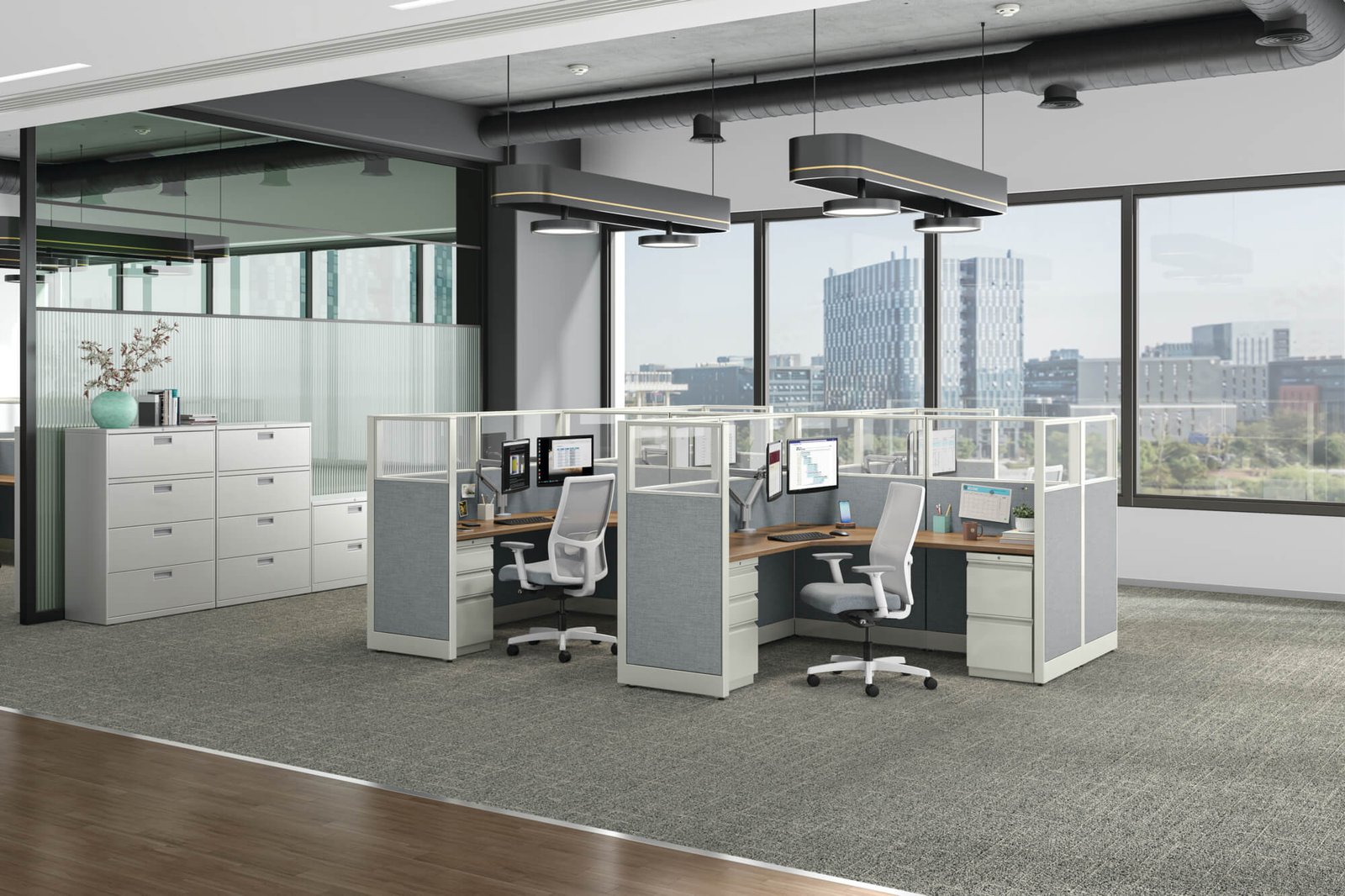Office environments play a profound role in shaping employee behavior, engagement, and overall job satisfaction. One element that consistently sparks debate is the use of cubicles. While often associated with privacy and focus, cubicles also carry psychological effects—both positive and negative—that influence how people perform at work. This blog explores the deep psychological impact of cubicles, how workspace design shapes human behavior, and what organizations can do to build healthier, more productive environments.
The Influence of Environment on Human Behavior
Environmental psychology reveals that our surroundings significantly affect our emotions, cognition, and actions. In a workplace setting, factors like lighting, sound, privacy, and personal space can affect mood, concentration, and motivation. Cubicles are more than just furniture; they define boundaries and shape how employees interact with their space and colleagues.
How Cubicles Affect the Mind and Behavior
1. Promote a Sense of Ownership
Having a dedicated workspace provides a feeling of control. Employees who work in cubicles often treat their space as an extension of their identity. Personalizing the space with photos, decor, or favorite tools can boost morale and motivation.
2. Encourage Deep Work and Focus
The physical boundaries offered by cubicles reduce visual and auditory distractions. This creates an ideal setting for cognitive-heavy tasks, such as writing, designing, or data analysis. Employees can enter a state of “flow” more easily when interruptions are minimized.
3. Support Autonomy and Privacy
Cubicles give employees a sense of independence and privacy. Unlike open-plan offices where every move is visible, cubicles allow individuals to work without constant scrutiny. This autonomy often leads to greater satisfaction and less performance anxiety.
4. Manage Interpersonal Dynamics
While cubicles may seem isolating, they actually reduce unnecessary social stress. Employees can choose when and how to engage with colleagues. This control over social interaction can be particularly beneficial for introverts or those prone to social fatigue.
Potential Downsides of Cubicle Environments
While cubicles offer many psychological benefits, they can also present challenges if poorly designed or implemented.
-
Feelings of Isolation: Without enough team interaction, employees might feel disconnected.
-
Monotony: Uniform cubicles lacking color or personalization can seem sterile or uninspiring.
-
Hierarchy Symbolism: When cubicles are used to reinforce corporate hierarchy, it can lead to resentment or disengagement.
These issues can be mitigated with thoughtful design and inclusive policies.
Designing Cubicles with Psychology in Mind
To maximize the psychological benefits of cubicles, design must be intentional. Here are essential strategies:
-
Add Visual Variety: Use calming or energizing colors (like green or blue) to affect mood positively.
-
Enable Customization: Allow employees to personalize their cubicles with minimal restrictions.
-
Incorporate Natural Elements: Biophilic design elements like plants, wood textures, and natural light enhance mood.
-
Promote Movement: Encourage adjustable desks, ergonomic furniture, and space for stretching or quick walks.
-
Foster Community: Include communal spaces where employees can socialize when they choose to.
Cubicles and Employee Satisfaction
Surveys and studies indicate that employees who feel a sense of control over their environment tend to be more engaged and satisfied with their jobs. Cubicles support this by offering spatial consistency, autonomy, and privacy.
They also reduce the psychological stress caused by constant noise and overstimulation common in open offices. For many, cubicles create a “mental bubble” where they can recharge and refocus throughout the day.
The Role of Personality Types
Different personality types respond differently to various work environments:
-
Introverts thrive in cubicles that minimize distractions and social pressure.
-
Extroverts may prefer semi-open designs but still benefit from having personal work zones.
-
Highly Sensitive Individuals require quiet, predictable spaces, making cubicles an excellent choice.
Designing with personality diversity in mind helps foster inclusivity and well-being.
Final Thoughts
The psychology behind cubicles reveals that workspace design is never one-size-fits-all. When thoughtfully implemented, cubicles can support focus, autonomy, and emotional well-being—key ingredients for workplace success.
By understanding how cubicles affect behavior and cognition, employers can create environments that not only enhance productivity but also respect the mental and emotional needs of their teams. A well-designed cubicle isn’t just a space—it’s a strategic tool for employee empowerment.
FAQs
Q1: Do cubicles support better mental health at work?
A: Yes, cubicles reduce distractions and social pressure, which can lower stress and enhance mental well-being.
Q2: Can cubicles make employees feel isolated?
A: They can if not balanced with opportunities for social interaction. Communal spaces help reduce this effect.
Q3: Are cubicles better for introverts?
A: Absolutely. Cubicles provide a quiet, controlled environment where introverts can thrive.
Q4: How do cubicles impact job satisfaction?
A: Well-designed cubicles increase autonomy and reduce distractions, both of which contribute to higher job satisfaction.
Q5: Can cubicle environments be personalized?
A: Yes. Allowing personalization boosts morale and makes the space feel more like home.

